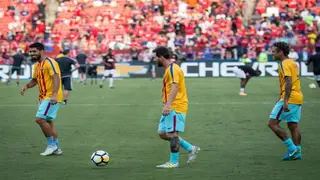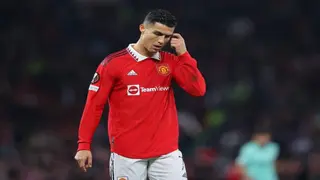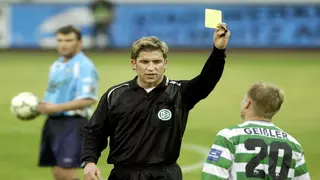Ranking the 10 best attacking trios in football history
Football
Football has stringent rules governing the substances players can use, ensuring fair competition is upheld through hard work.
Athletes worldwide have sought marginal gains to achieve their goals, sometimes resorting to illegal methods.

Notable figures like Rio Ferdinand, Pep Guardiola, and Diego Maradona have faced legal issues during their playing careers. While some instances may be inadvertent, others are less straightforward.
Sports Brief takes a look at football's most prominent doping cases over the years.
PAY ATTENTION: stay informed and follow us on Google News!
Ranking the 10 best attacking trios in football history
Football
In 2001, during his time at Serie A club Lazio, Stam received a five-month ban from football due to a positive drug test for Nandrolone, the same anabolic steroid Guardiola was accused of using. Despite Stam's objections, he was ultimately suspended for four months, with a partial success in his appeal resulting in a reduction of one month from the initial ban.
In February 2021, Andre Onana received a 12-month ban after an adverse drug test revealed the presence of Furosemide, a banned substance, in his blood.
Onana maintained his innocence, claiming that he mistakenly took his wife's pregnancy medicine. Despite a more favourable view from the Court of Arbitration for Sport, he was still prohibited from playing for nine months.
When Edgar Davids tested positive for the steroid Nandrolone, it reverberated through the sport, echoing the situation of his national team compatriot, Jaap Stam.
Cristiano Ronaldo's transfer: Is CR7 leaving Manchester United and which clubs are likely to acquire him?
Football
Both the A and B samples yielded positive results for the star player. Initially facing a 16-month ban, he appealed the decision and saw his suspension reduced to just four months.
Adrian Mutu's Chelsea tenure abruptly ended in 2004 after he was discovered using 'nosy candy', leading to his dismissal from the club and a seven-month ban.
In 2010, while playing for Fiorentina, Mutu faced trouble once more, receiving a nine-month ban. He claimed that traces of sibutramine found in his tests resulted from slimming tablets given to him for his mother, a defence he presented to prosecutors.
Maradona grappled with various off-field issues that diverted his focus from matters on the field. Alcohol, nose candy, and copulation were significant challenges for him.
His doping controversy arose when he tested positive for five variants of ephedrine, a banned stimulant by FIFA, resulting in his premature departure from the 1994 World Cup. This 15-month ban followed another one in 1991 due to his 'nose candy' addiction.
A list of the biggest match-fixing scandals in sports history
Other Sports
Despite grappling with fitness issues that hindered his form, Pogba remained a force to be reckoned with at the elite level.
However, his career trajectory took a significant hit when he received a four-year ban from football for failing an anti-doping test due to the detection of testosterone not produced by the body.
However, there remains a possibility of a reduction in his punishment length pending his appeal to the Court of Arbitration for Sport.
Sports Brief reported on fans' reaction to Pogba's ban after it was announced that the former Manchester United star will not be able to play until August 2027.
The news came with criticism of his attitude towards football, particularly from United fans who slammed him for wasting his talents as he did not take his career seriously enough.